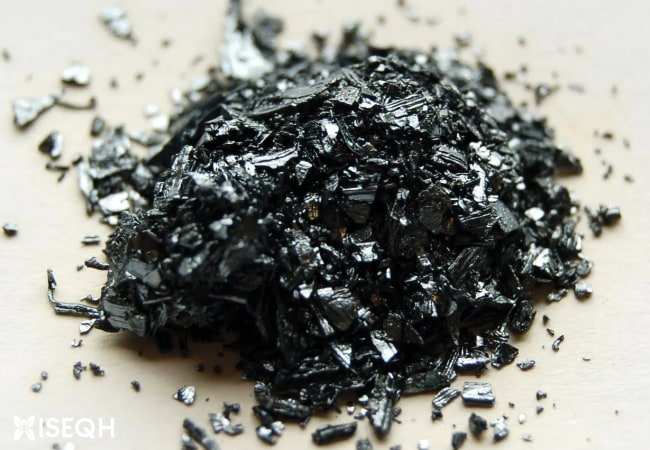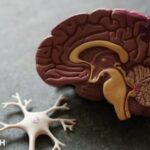
Table of Contents
Iodine: Benefits, Sources, and Risks
Iodine, a trace mineral essential for human health, is a veritable powerhouse nutrient that plays a vital role in producing thyroid hormones. These hormones are responsible for regulating an impressive array of essential bodily functions, including metabolism, growth, and development. While iodine is found in many foods, some people may require higher levels of this indispensable nutrient, particularly in areas with low-soil iodine levels.
In this article, we will delve into the myriad benefits, sources, and risks associated with iodine intake. From its potential role in preventing goiter and hypothyroidism to its influence on fetal brain development, iodine is an incredible nutrient with a remarkable range of benefits. However, it’s crucial to understand the potential risks associated with excessive iodine intake, such as thyroid dysfunction or even iodine-induced hyperthyroidism.
Overall, by understanding the benefits, sources, and risks of iodine, you can make informed decisions about incorporating this critical nutrient into your diet to ensure optimal health and wellbeing.
What is Iodine?
Iodine, an essential mineral, is a crucial component in the body’s production of thyroid hormones that regulate a multitude of vital bodily functions, including metabolism, growth, and development. Since the human body is unable to manufacture iodine endogenously, it must obtain it from external sources, such as dietary intake.
The indispensable role of iodine in thyroid hormone synthesis underscores its significance as a vital nutrient for human health. Without adequate iodine levels, the thyroid gland may not be able to produce sufficient thyroid hormones, leading to numerous adverse health effects, such as sluggish metabolism, stunted growth, and impaired brain function. Thus, it’s critical to ensure adequate iodine intake from dietary sources, such as seaweed, dairy products, and iodized salt, among others.
By recognizing the vital role of iodine in thyroid hormone production, you can take proactive steps to ensure optimal health and wellbeing by incorporating iodine-rich foods into your diet or considering supplementation, under the guidance of a healthcare provider.
Benefits of Iodine
Iodine has many benefits for the body. Here are some of the most important ones:
Supports Thyroid Function
oversee a plethora of vital bodily functions, including metabolism, growth, and development. Unfortunately, inadequate iodine levels can impair thyroid hormone production, leading to hypothyroidism, a condition characterized by reduced thyroid hormone levels. Hypothyroidism can trigger an array of unpleasant symptoms, such as fatigue, weight gain, and depression, which can significantly impact one’s quality of life.
Boosts Brain Development
Iodine is particularly important for brain development during pregnancy and infancy. Studies have shown that pregnant women who do not get enough iodine may have children with lower IQs and impaired cognitive function.
Promotes Healthy Pregnancy
Iodine is essential for a healthy pregnancy. It helps the baby’s brain and nervous system develop properly and reduces the risk of miscarriage, stillbirth, and preterm delivery.
Sources of Iodine
Iodine is found in many foods, but the amount can vary widely depending on the soil in which the food is grown. Here are some of the best dietary sources of iodine:
Seafood
Seafood is one of the best sources of iodine, especially seaweed. One sheet of dried seaweed can contain up to 4,500 mcg of iodine, which is more than the daily recommended intake.
Dairy Products
Dairy products, such as milk and cheese, are also good sources of iodine. However, the amount of iodine in these foods can vary depending on the animal’s diet and the processing methods.
Iodized Salt
Iodized salt is a common source of iodine in many countries. However, not all salt is iodized, so checking the label before buying is important.
Risks of Iodine Deficiency
Iodine deficiency can have serious consequences for the body. Here are some of the most common risks associated with iodine deficiency:
Hypothyroidism
Hypothyroidism is when the thyroid gland does not produce enough thyroid hormones. This can lead to symptoms such as fatigue, weight gain, and depression.
Goiter
A goiter is an enlargement of the thyroid gland caused by iodine deficiency. This can cause a visible swelling in the neck, making it difficult to swallow or breathe.
Intellectual Disability
Iodine deficiency during pregnancy and infancy can result in intellectual disability and impaired cognitive function.
Miscarriage and Stillbirth
Iodine deficiency during pregnancy can increase the risk of miscarriage, stillbirth, and preterm delivery.
Risks of Excessive Iodine Intake
While iodine is essential for human health, excessive intake can also be harmful. Here are some of the risks associated with excessive iodine intake:
Hyperthyroidism
Excessive iodine intake can cause the thyroid gland to produce too much thyroid hormone, leading to hyperthyroidism. This can cause symptoms such as weight loss, anxiety, and rapid heartbeat.
Thyroid Dysfunction
Excessive iodine intake can also cause thyroid dysfunction in people with pre-existing thyroid conditions.
Conclusion
Iodine, an indispensable mineral, plays a critical role in human health by facilitating numerous vital physiological processes, including the synthesis of thyroid hormones, brain development, and healthy pregnancy. Insufficient iodine intake can have detrimental consequences, such as developmental abnormalities, goiter, and impaired cognitive function, underscoring the significance of maintaining adequate iodine levels.
However, it’s crucial to strike a balance between iodine intake and optimal health, as excessive iodine intake can be equally harmful. Indeed, high iodine intake can exacerbate thyroid dysfunction, thyroiditis, or even thyroid cancer, among other health complications.
Thus, to ensure optimal health, it’s essential to obtain iodine from dietary sources or supplements while avoiding excessive iodine intake. Some iodine-rich foods include seaweed, dairy, and iodized salt, while supplements may be appropriate for individuals with underlying health conditions or those living in regions with low-soil iodine levels.
FAQs
Can iodine supplements help with weight loss?
While iodine is essential for thyroid function and metabolism, there is no evidence that iodine supplements can aid in weight loss.
How much iodine do I need per day?
While iodine is essential for thyroid function and metabolism, there is no evidence that iodine supplements can aid in weight loss.
Can iodine supplements be harmful?
Excessive iodine intake can be harmful, especially for people with pre-existing thyroid conditions. It is important to consult a healthcare provider before taking iodine supplements.
Can iodine deficiency be treated with dietary changes alone?
Sometimes, dietary changes alone may be enough to correct iodine deficiency. However, in severe cases, iodine supplements may be necessary.
Is it safe to consume large amounts of iodized salt?
Consuming large amounts of iodized salt can increase your risk of excessive iodine intake and its associated risks. Therefore, it is important to consume iodized salt in moderation and to ensure you get enough iodine from other dietary sources.








